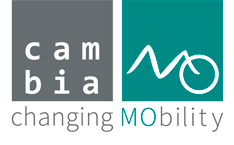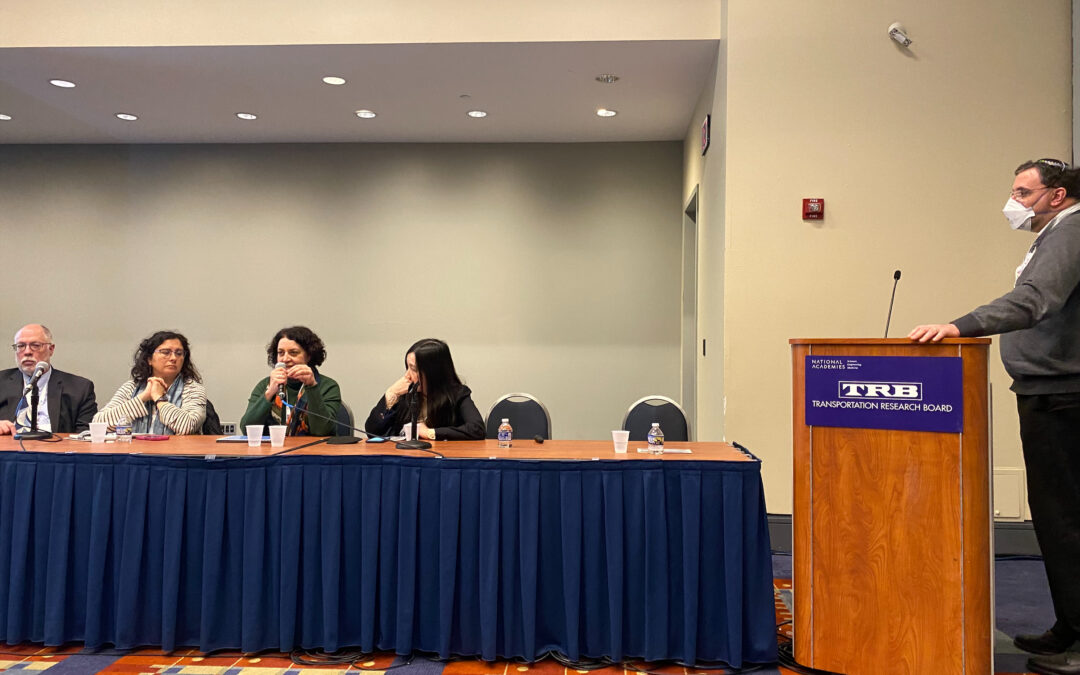Within the framework of the last TRB Annual conference, in this edition of the publication on “Critical Issues in Transportation for 2024 and beyond”, the Transportation Research Board’s executive committee chose to focus on five vitally important societal goals to meet these major challenges facing society: Mitigating and responding to climate change, promoting equity and inclusion, increasing road safety, advancing public health, and building and sustaining a strong, competitive economy.
Floridea DiCiommo, director of cambiaMO, took part in this discussion of “Critical issues in Transportation” towards the goal of thriving society focusing on the use of Gender in the Analytical Transportation Planning Process, organized by Michelle Bini from Cambridge Systematic and Jonathan Ehrlich from Metropolitan Council. Floridea presented the importance of equity in transport and the mobility of caring framework in transportation planning, emphasizing on intersectionality and the need to change models’ algorithms to achieve a more inclusive approach. Other panelists participating in the discussion were Thomas Rossi from Cambridge Systematics, Ying Song from the University of Minnesota, and Sarah McCullough from the University of California.
She discussed the key questions for assessing transport impacts in terms of inclusiveness, accessibility, air quality, and climate change. Enhancing the fact that the population group with the greatest mobility needs are caregivers.
Floridea conveyed how making needs visible is essential for measuring transport equity, since current benefit-based methodologies do not always succeed in highlighting unmet needs. And brought to the table a debate on what can be done beyond the cost-benefit analysis, since failing to meet these needs may result in physical, social, geographical and economic social exclusion
She also drew attention to the fact that the EU has established the right to mobility as a passenger’s right. However, the right to mobility per se for potential users who need to carry out certain essential tasks does not exist.
Floridea, in line with Sarah McCullough’s intervention on conducting Equitable and Socially Informed Gender Analysis and after Thomas Rossi‘s intervention on what travel models can and cannot do regarding gender-related travel behavior, finalized her contribution to the discussion with some takeaways for a trustful and inclusive transportation planning such as: building trust in qualitative data, adopting a citizen science approach, identifying the best practices guide for intersectionality in data collection and analysis, and focusing on meaningful populations more than on the representative demographic samples. This final thought gave the ground for the following intervention of Ying Song on gender differences in Activity-Travel Behaviors and Wellbeing Outcomes.
Some projects with case studies in equity on which Floridea has been working on are: CLIMAS | Citizens engagement toolbox for dealing with climate change adaptation, SPINE | Smart Public Transport Initiatives for climate-Neutral cities in Europe, BGD | Barcelona Gender and Diversity equality for urban public transportation, and INDIMO | INclusive DIgital MObility solutions.






